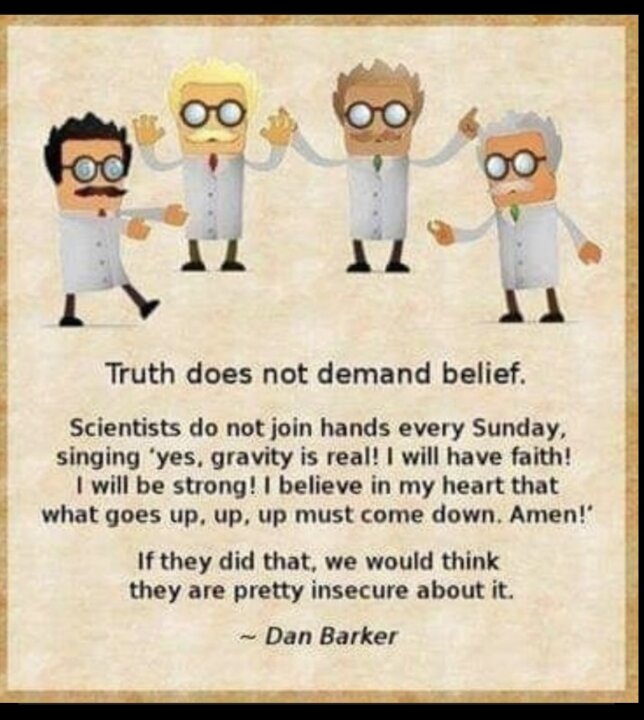@SW-User
In replication of study results I trust.
Yes, atheism , depending on the nutter, does tilt into the “gotta have faith” camp.
What is it with unbelievers and failed Christians? Darwin, Dawkins, Barker . . .
Playing Around With Barker's Easter Challenge Way Back1. Matthew was the only one to mention dead people emerging from their graves upon Jesus' death. It is assumed that these resurrected dead were walking around.
The omission of the dead people emerging from the graves by the other writers does not, of course, mean anything. Matthew
was the first gospel to be written. In De viris inlustribus (Concerning Illustrious Men), chapter III, Jerome says: "Matthew, who is also Levi, and who from a publican came to be an apostle, first of all composed a Gospel of Christ in Judaea in the Hebrew language and characters for the benefit of those of the circumcision who had believed." So this (Matthew having been the first gospel) might be a reason for the others having not included the dead people emerging from their graves.
Any serious scholar of the Bible could tell you that at Matthew 27:52-53 the Greek egeiro means simply raised up rather than
resurrected back to life, and in addition to this "they" (meaning the bodies that were walking around) is a pronoun, and in Greek all pronouns have gender and "they" is masculine whereas bodies" (the bodies that were lifted up) is in the neuter. They are not the same.
Adam Clarke: "It is difficult to account for the transaction mentioned in verses 52 and 53. Some have thought that these two verses have been introduced into the text of Matthew from the gospel of the Nazarenes, others think the simple meaning is this: - by the earthquake several bodies that had been buried were thrown up and exposed to view, and continued above ground till after Christ's resurrection, and were seen by many persons in the city."
Theobald Daechsel's translation: "And tombs opened up, and many corpses of saints laying at rest were lifted up."
Johannes Greber's translation: "Tombs were laid open, and many bodies of those buried there were tossed upright. In this posture
they projected from the graves and were seen by many who passed by the place on their way back to the city."
2. At Matthew 28:2 there was an "earthquake" and an angel rolled back
the stone slab that closed the tomb off. The other gospel writers don't
mention this. Some Bible defenders suggest past perfect, but as the
author points out the passage is in the aorist (past) tense.
The Greek word seismos means quaking, shaking or
trembling. (Matthew 27:51, 54; 28:4; Revelation 6:13) The earth quaking
from the moving of a
rather large stone, for example, might have been trivial enough for some
not to mention it.
A Grammar of New Testament Greek, by James H. Moulton,
Vol. I, 1908, p. 109, "the Aorist has a 'punctiliar' action, that is,
it
regards action as a point: it represents the point of entrance . . . or
that of completion . . . or it looks at a whole action simply as having
occurred,
without distinguishing any steps in its progress."
Aorist is a peculiar tense in the koiné Greek which
means "not bounded" as to time. Verbs in the aorist tense can be
rendered in a
variety of ways depending upon the context. They could mark a definite
occurrence of something at an unstated time in the past, such as with
Matthew 28:2. An
example of a similar case would be in Matthew 17:3 where the voice
announced that the son had been approved. Many translations often miss
the exact meaning of
texts where the aorist tense is used. Matthew, understood correctly,
indicates that the stone had been rolled back before the women arrived,
he only mentioned
that the stone had been moved and how it was moved whereas the other gospel writers do not.
Nothing is certain, Hawking acknowledged a creative force.
The reality is nobody knows…
That includes you.
Yeah, but Hawking only had an uneducated guess. I have documentation.






